Blog
A Journey from Sumerpark to Denizli Horizon Garden
As Denizli rapidly develops in the fields of industry and housing, it is also gaining attention with its retail real estate projects. The city is not only expanding, but also leading the way in unique and innovative transformations within the shopping center sector. One of the most striking examples of this transformation is the story that stretches from Sümerpark Shopping Mall, which opened its doors in 2011, to Denizli Horizon Garden — Turkey’s first shopping mall transformation project. Let’s take a closer look at this process:
Located at the intersection of the İzmir, Antalya, and Ankara highways, Sümerpark made an ambitious entrance into the retail world as one of Turkey's earliest urban transformation projects (from factory to shopping mall). With 80 stores, a construction area nearly twice the size of its 48,000 square meter plot, and a leasable area of 37,000 square meters, it quickly became a major attraction for Denizli. Hosting a hypermarket, a DIY store, gastronomy spaces, and children’s play areas, Sümerpark redefined the shopping experience in the city with its architecture that combined both open and enclosed areas.
However, it would be misleading to evaluate a shopping mall solely based on its size or location. Over time, certain critical shortcomings began to weaken Sümerpark’s competitive strength. Its open-air design rendered it incompatible with local microclimate conditions; the absence or withdrawal of anchor tenants with the ability to attract and guide consumers; imbalances in the distribution of store categories; and inadequacies in management and marketing strategies all contributed to the decline in the center’s appeal.
On the other hand, rapidly changing consumer habits and the growing demand for new-generation shopping experiences further accelerated Sümerpark’s downward trajectory.
We are now in a period where retail destinations that fail to foresee or adapt to these changes are inevitably approaching their end. Transformation is no longer a choice—it is an undeniable necessity. With this awareness, and especially in light of a change in ownership structure, a comprehensive renewal and transformation project was launched through a collaboration between WeConsult and ALKAŞ, paving the way for the birth of Denizli Horizon Garden.
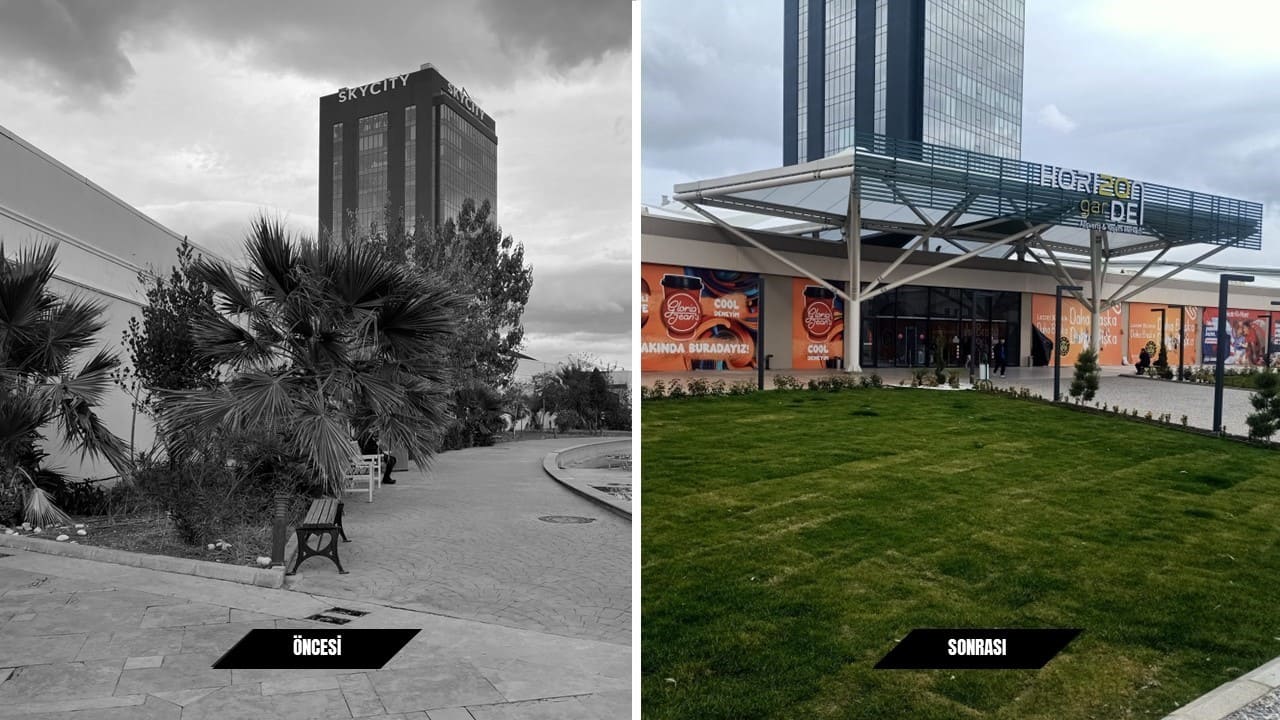 Main login optimization
Main login optimization
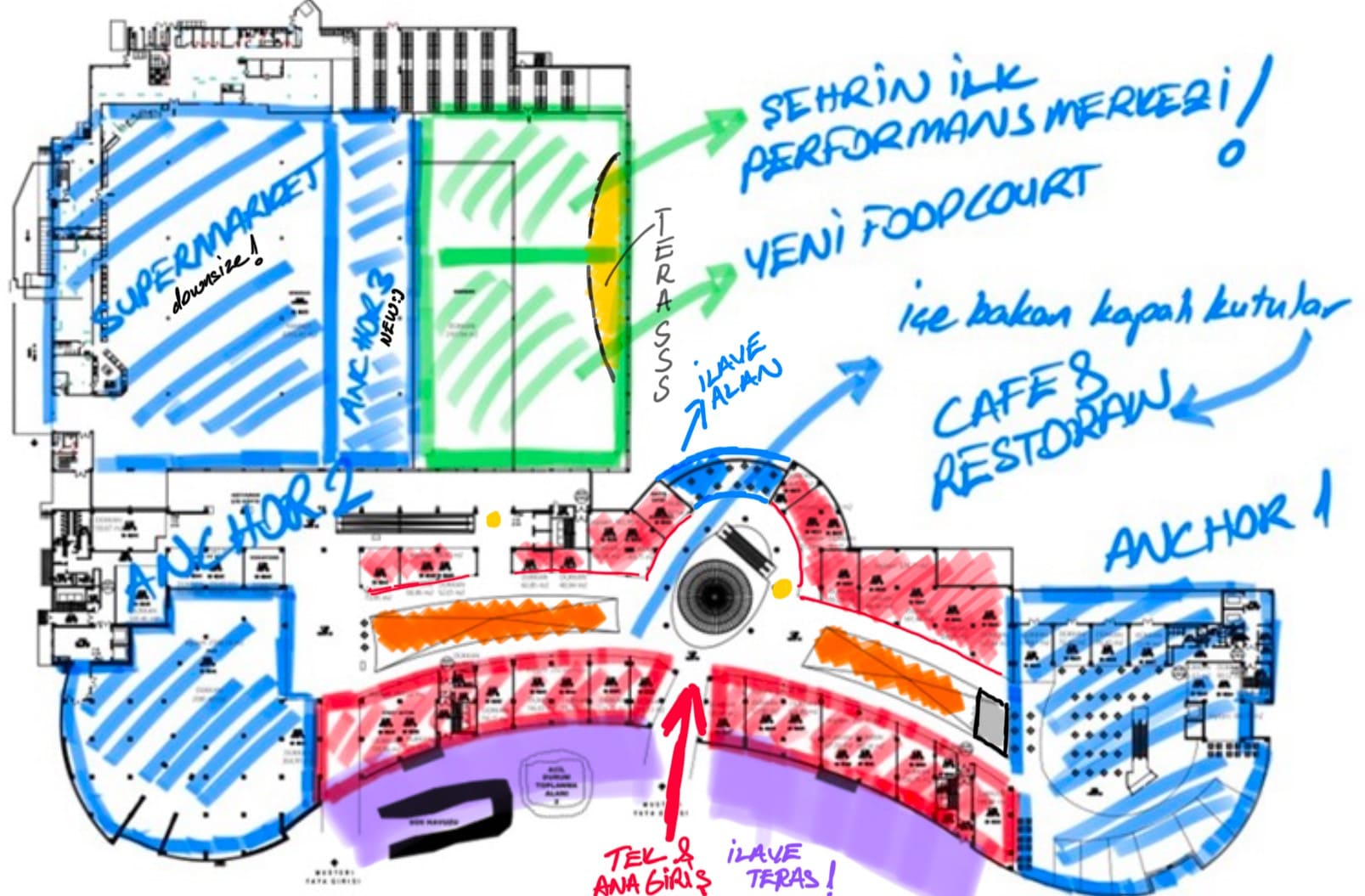 Functional Planning, first thoughts
Functional Planning, first thoughts
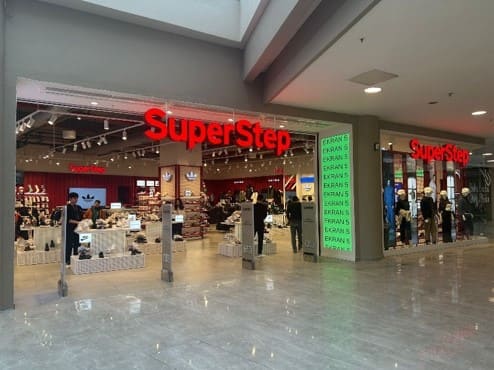
Evaluating current consumer demands and applying functional planning principles were among our top priorities. Denizli Horizon Garden was revitalized through a series of strategic interventions: the family entertainment area was reconfigured, the food court was relocated and expanded with new brands and a terrace area, anchor store zones were redesigned, and brands favored by families and younger consumers—offering the latest retail concepts—were strategically integrated.
The 18-month transformation process, which involved construction, reprogramming, leasing, and marketing being carried out simultaneously, was both a challenging and rewarding journey for us as the service provider. We would like to extend our sincere thanks once again to our investor, Pera Yatırım Holding, and to all our project partners, whose support we felt at every step of the way.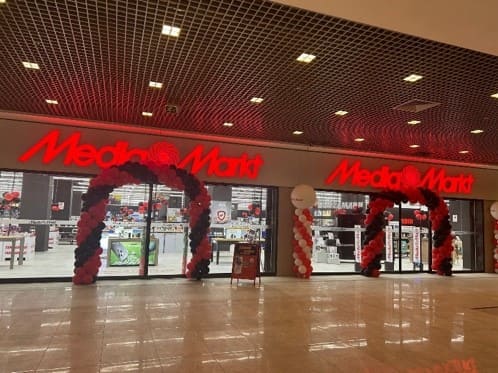
Launched as Turkey’s first shopping mall transformation project, Denizli Horizon Garden opened its doors with a renewed concept on November 16. This transformation not only offers a significant model for revitalizing shopping centers that have lost their function or competitive edge, but also positions itself as the new hub for next-generation retail experiences in Denizli.
With a leasable area of 37,000 square meters and nearly 70 stores, Horizon Garden is now positioned not merely as a shopping destination, but as a center for social life, entertainment, and experience. Featuring strong anchor tenants such as MediaMarkt, LC Waikiki, Boyner, Migros, MR. DIY, Ebebek, and Evidea, it offers visitors a wide range of choices and an enriched retail environment.
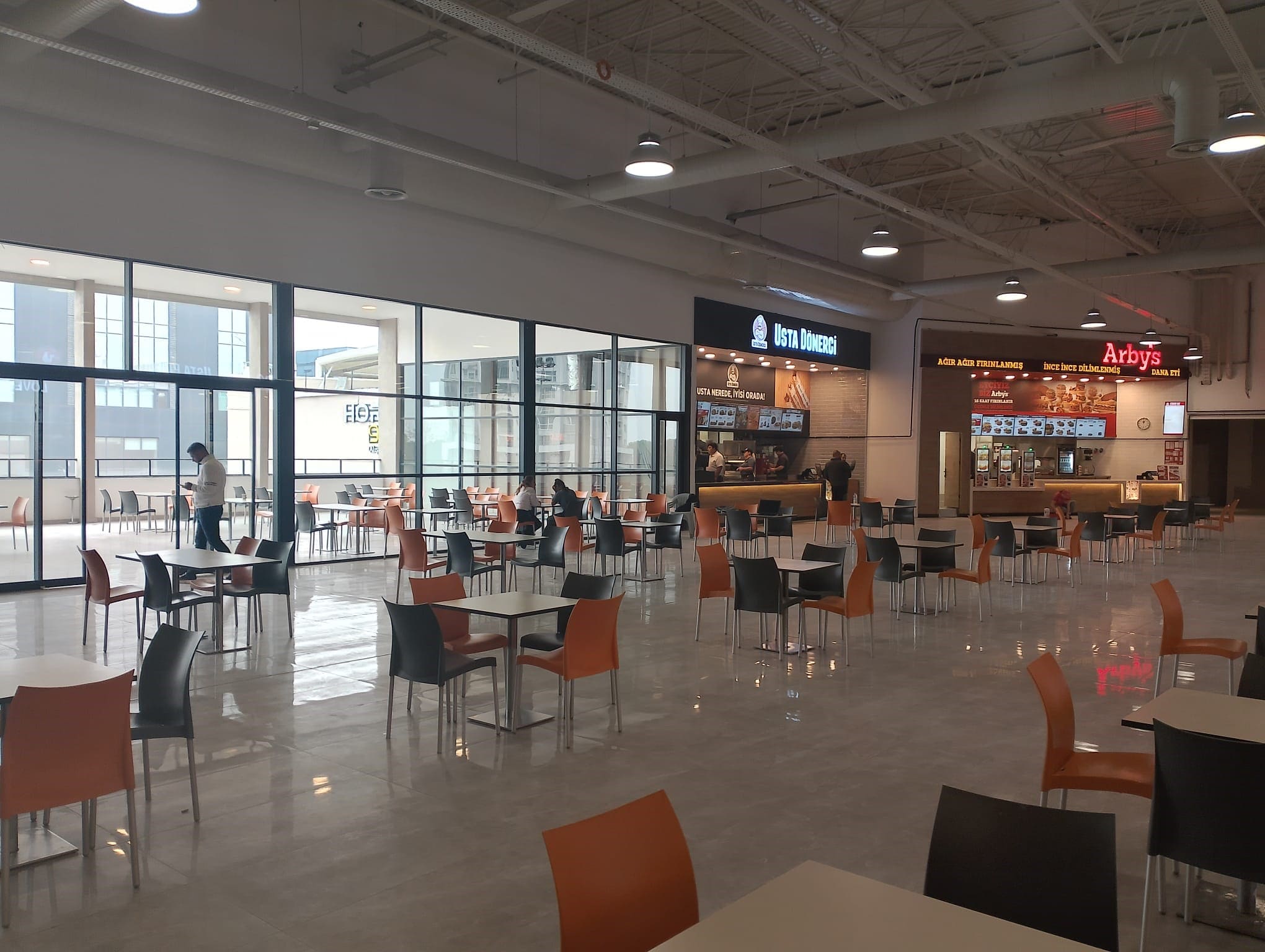
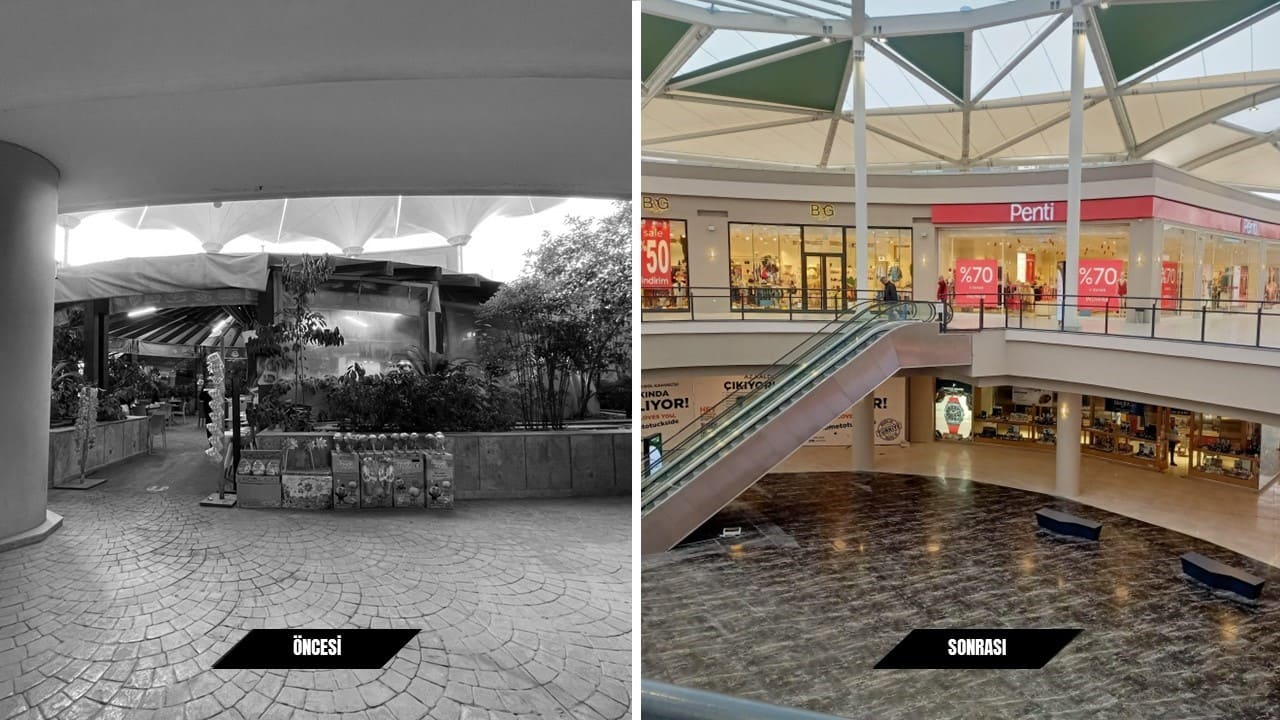
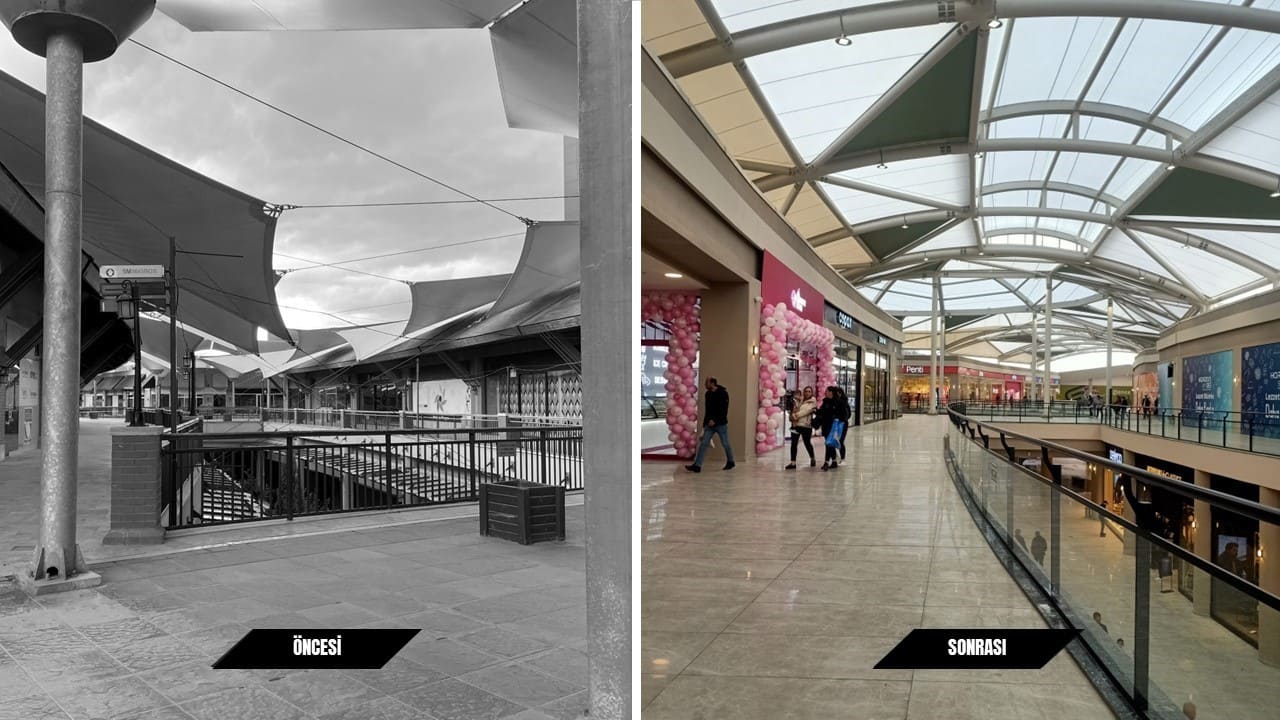
Global Inspirations Behind Horizon Garden
While Denizli Horizon Garden stands out as Turkey’s first shopping mall transformation project, it also draws inspiration from numerous global models of retail redevelopment. Similar transformations have been implemented in various cities around the world to adapt to shifting consumer expectations and the evolving landscape of the retail industry.
One of the most striking examples of this is La Maquinista in Barcelona. Initially designed as an open-air shopping center, it offered visitors a unique experience for many years. However, shifting customer expectations and the challenges posed by seasonal weather conditions made transformation inevitable. Through a series of revisions, much of the open-air space was enclosed to create a modern, climate-controlled shopping environment. As a result, visitors were presented with an innovative space that preserved the feel of an open-air atmosphere while offering the comfort of an enclosed mall.
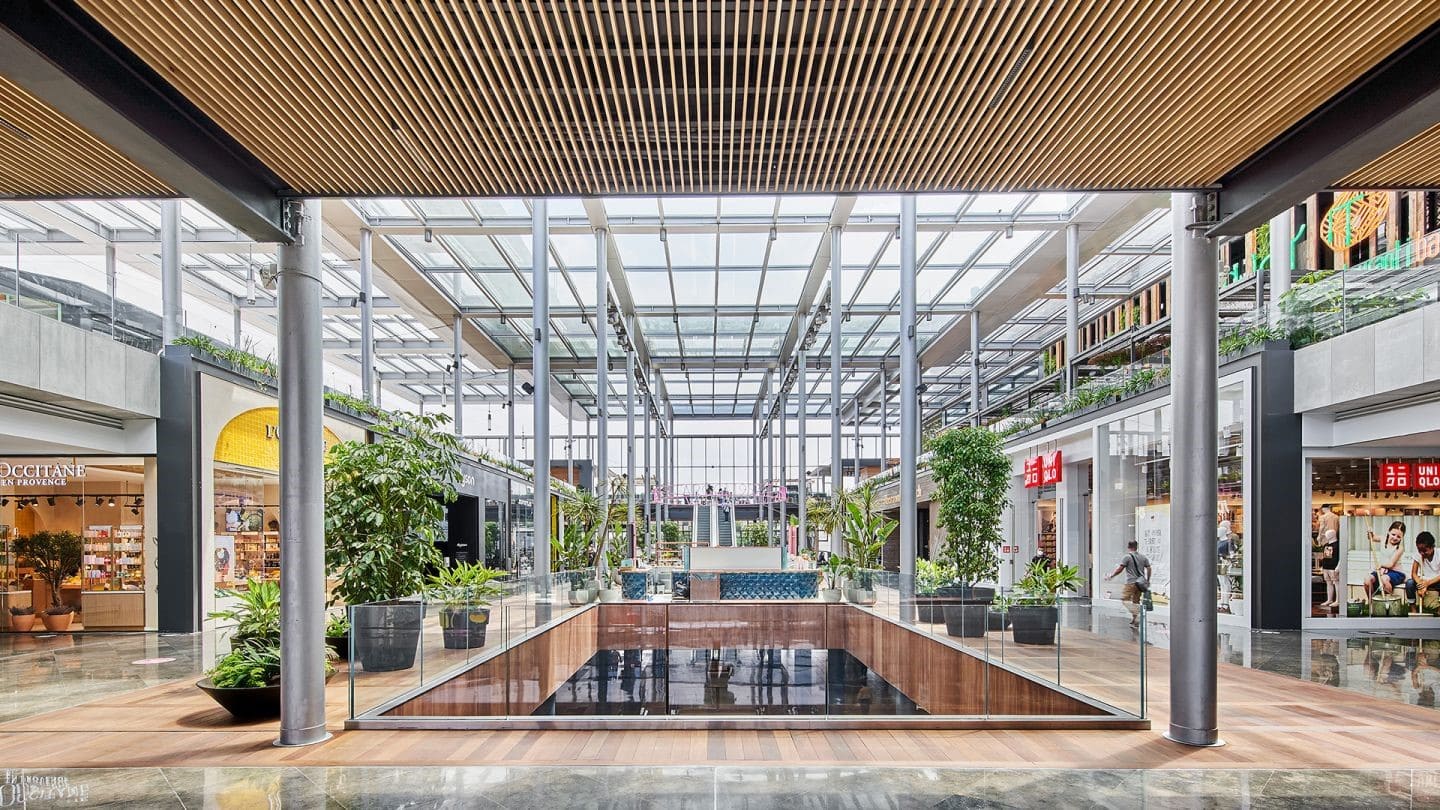 La Maquinista, Barselona (https://www.westfield.com/es/spain/lamaquinista)
La Maquinista, Barselona (https://www.westfield.com/es/spain/lamaquinista)
The Battersea Power Station in London stands out as one of the most impressive examples of such transformations. Built in the 1930s, this massive power plant supplied London’s energy needs for decades and became one of the most iconic symbols of British industrial heritage. However, due to shifts in the energy sector and global climate challenges, it eventually became obsolete and remained unused for many years.
A comprehensive renovation project initiated in the 2000s transformed Battersea Power Station into one of London’s most prestigious residential and retail destinations. Throughout this process, the building’s original architectural features were carefully preserved while its interiors were converted into modern living spaces. Today, Battersea Power Station offers a diverse range of uses, including luxury brand stores, upscale restaurants, residential units, office spaces, and cultural venues, making it one of London’s most significant social hubs.
This project, which flawlessly blends historical and contemporary elements, is regarded as one of the most compelling examples of how defunct structures can be reinvented as next-generation living environments.
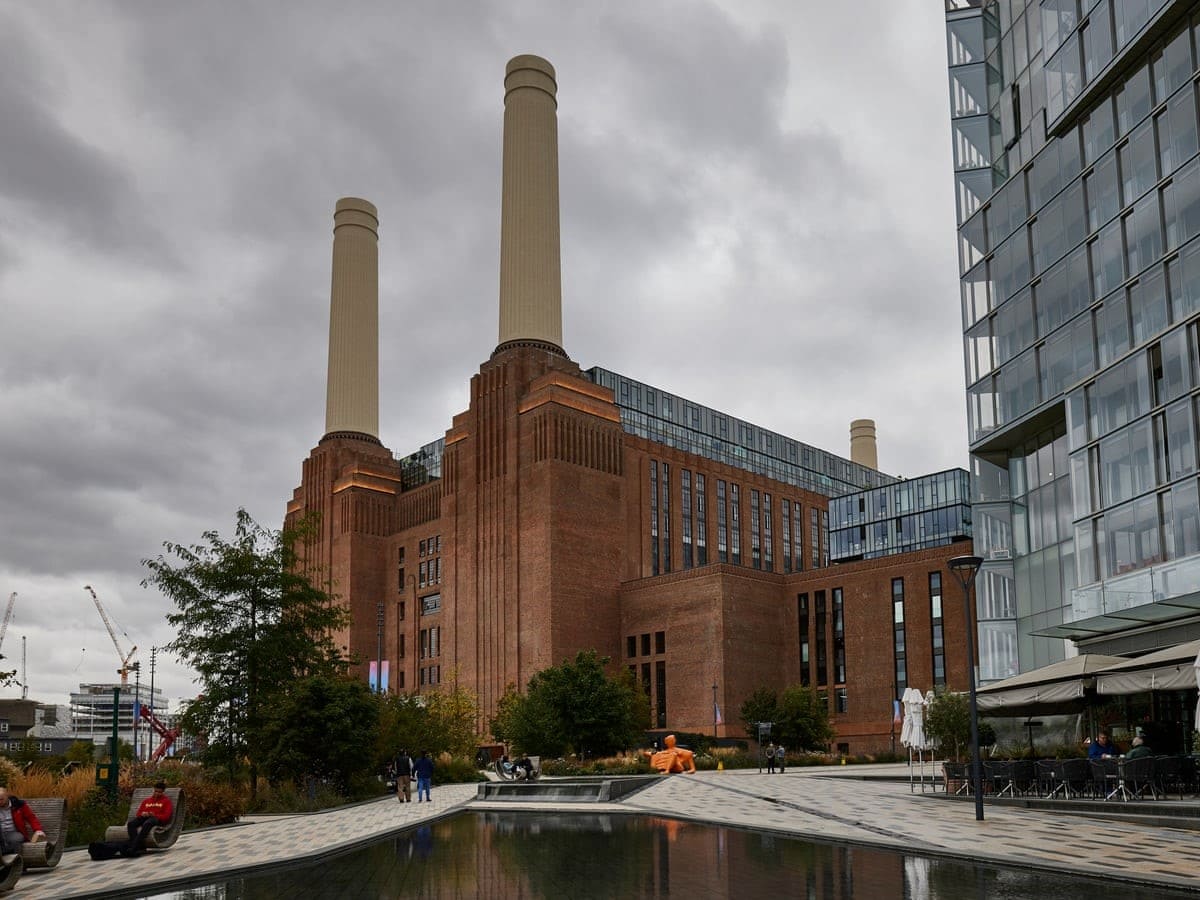 Battersea Power Station, Londra (https://batterseapowerstation.co.uk/)
Battersea Power Station, Londra (https://batterseapowerstation.co.uk/)
One of the most striking examples worldwide of industrial heritage being revitalized through modern retail and social spaces is Manufaktura in Łódź, Poland. Originally built as a large textile factory in the 19th century, this complex served as a cornerstone of Poland’s industrial economy for many years. However, with the decline of industrial production, it lost its function and gradually approached the brink of collapse.
The transformation project launched in the early 2000s elevated Manufaktura beyond a mere shopping center. Today, it operates as a multifunctional complex combining retail, culture, entertainment, and social life. The project not only created stores but also established museums, cinemas, restaurants, and large event spaces, breathing new life into the city’s cultural and social fabric.
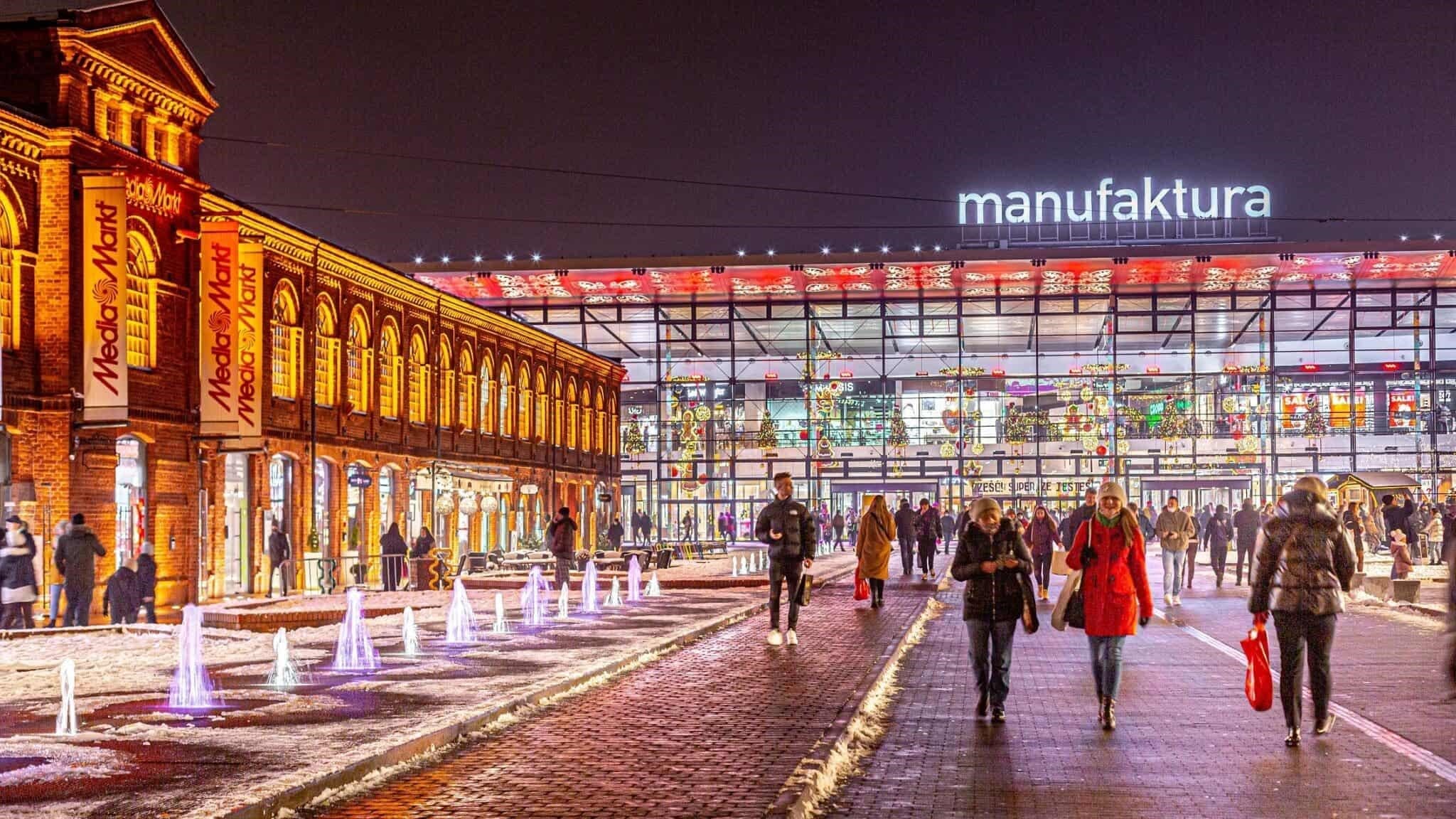 Manufaktura, Lodz, Polonya (https://en.manufaktura.com/)
Manufaktura, Lodz, Polonya (https://en.manufaktura.com/)
With its vast 110,000-square-meter shopping area and architecture that preserves its historic character, Manufaktura has become a major attraction for both locals and tourists. This project, which honors Poland’s cultural and historical heritage, offers an inspiring example of how industrial sites can be successfully repurposed.
Like Horizon Garden, Manufaktura tells a powerful story of how the adaptive reuse of expired spaces can reshape a city’s identity.
Examples such as La Maquinista, Battersea Power Station, and Manufaktura demonstrate that shopping centers are not merely commercial spaces but have become integral parts of social life, culture, and modern urban living. These projects serve as powerful sources of inspiration for how the retail sector can adapt to its evolving dynamics. Just like these international examples, Horizon Garden illustrates that transformation is not only a physical renewal but also a visionary endeavor. Considering that approximately 15% of the more than 450 shopping mall buildings in our country are over 15 years old and have never undergone renovation, we anticipate that transformation projects will gain increasing importance for our industry in the near future. We also believe that, in line with our national economy and social responsibility awareness, these transformations will resonate positively with public authorities.
